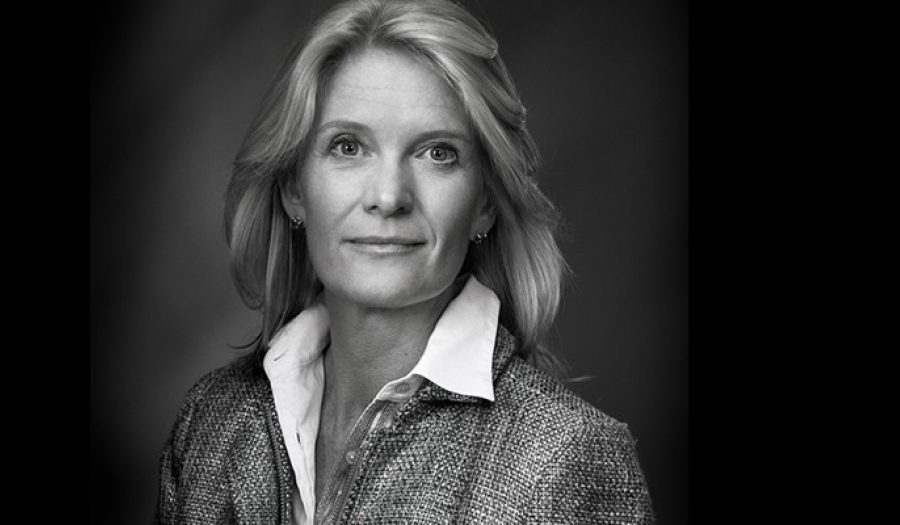
She wants to globalize the Norwegian health industry
This investor is looking for the success stories that can be lifted out into the world, and the Norwegian Smart Care Cluster is a natural network for this mission. Kristin Odfjell wants to see courage and ambition in the Norwegian industry.
– Actually, I have said that I should never work with my husband, but that's how it turned out. Now I see that we complement each other very well with knowledge in different fields, says Kristin.
When the family-owned shipping company was sold, the couple began their journey as investors with two years in Silicon Valley. The years in this global center of technology and innovation provided new knowledge and inspiration. And a new goal in the luggage back home: They want to contribute to building a strong Norwegian industry, fit for the future.
Kristin came as a breath of fresh air into the steering group of the Norwegian Smart Care Cluster. Together with her husband Johan Odvar Odfjell, she invests in what they believe is Norway's strongest cards: ocean, health, energy and technology.
From industry to health
– In Norway, we have a lot of expertise that can be transferred from industry to health. The expertise we have built up in other fields can give us a competitive advantage on an international level.
With her legs firmly planted in the city Bergen, she likes to see activities and growth in Western Norway's industry. At the same time, she also wants to see much more.
– We want to make a difference in health. To achieve that there are certain networks we should be visible in. For us, it is very interesting to be part of the network of the Norwegian Smart Care Cluster, which has so many member companies and an interesting work with the development of its own lab.
The investor with a background in health and clinical studies believes that it is important to dare, but perhaps even more important is to dare to fail.
– I do not think we are good at using innovative solutions in Norway. We find excuses for still struggling with challenges that could already have been solved.
Inspired by American culture, Kristin believes we should clear some space in the Norwegian culture. In the development phase, she wants to develop a greater culture of failure. "Failure day" is a concept to her liking, where everyone shares experiences that have gone wrong. There is a lot of learning in that.
How do we get there?
At the same time, no matter how much Kristin wants to see daring choices, she knows that we cannot risk too much when health is at stake.
– Health is difficult, and we cannot play Russian roulette. However, we could pilot to the maximum. Take advantage of digital, artificial intelligence and synthetic models. Look at how fast we have developed a vaccine for covid-19.
This is a theme that engages. The words come fast flowing with full energy through the computer screen in the digital conversation.
– Why is Norway no longer on the cutting edge? Maybe we're a too safe and sauced in oil money?
– I think we must be braver and decide that in health we will succeed. To do that we must expand our horizon.
She believes that the commercialization of research could have been a more important driver of development. Where academia educates entrepreneurs who dare to develop products with societal benefits.
– Through clearer lines for how academia can facilitate commercialization, we avoid useful research being left in a drawer.
A health care system in change
We hear a lot about a changing healthcare system, about new digital solutions that provide remolte health care services in peoples home. The investor with a health background can not predict the future or give us the answer on how to scale new innovation, but she believes in the health cluster as an important source of expertise in the development process.
– I believe in a forward-thinking mindset, and that we together will find out how we create the healthcare system of the future. We need a map and a compass. Where I think we need to strengthen ourselves is: "What happens in 10 years?" It is important to have a long-term mindset, and not least politicians who facilitate the right choices based on knowledge.
This is where she sees the clusters as an important piece. Somebody must tell most people how the health care system works and what it takes to build the health care system for the future. Kristin believes that digitalization is very relevant for making things more efficient. She hopes that more digitized health processes can give us the opportunity to monitor our health from home.
– The warm hands must not disappear. If we monitor more of our health from home, we can reorganize the way we deliver health services, and handle the increasing pressure on the health providers in a better way.
In the healthcare system of the future, Kristin believes that the responsible patient will have a more prominent role than today. We are in a phase where constantly new technology companies are popping up with smart solutions for both health and everyday life. In other words enough to do for the investor who wants to lift Norwegian companies' interests up and forward. With a hawkish look and a burning commitment to Norwegian opportunities, she follows those who dare to stand out.
– Someone must dare a little more to create a change. We need to have some success stories. I think it's as simple as someone having to succeed for others to dare.




